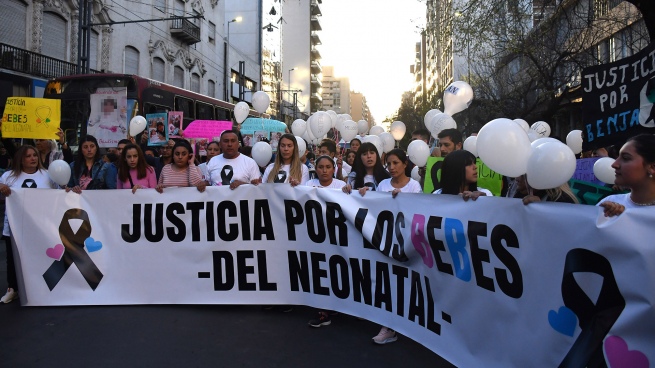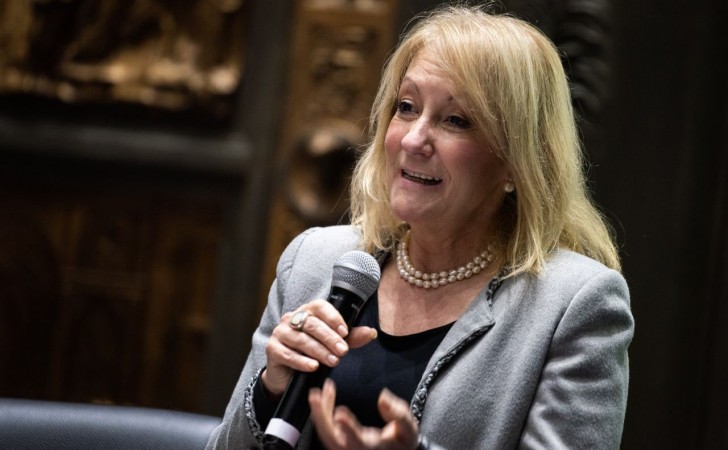The price of food rose 15 points in just one month in Venezuela, according to economists consulted by the Voice of America. Citizens warn that they are buying less and less food for their homes. They express astonishment at the rise in inflation
Luz María Pineda, a 54-year-old Venezuelan, has 10 children at home. Her husband, a security guard working day and night, earns 100 bolivars (about 12.5 dollars) a week, which is barely enough to feed them. Sometimes they fall short. August “coup” was never expected, he says, when the currency was devalued and inflation galloped again.
“The situation is difficult for everyone and, for those who have children, even more,” affirms the lady, Wayuu, as she walks holding the hand of one of her three-year-old children in a shopping center in Maracaibo, one of the country’s main cities.
Venezuela registered in August the highest monthly inflation of the last 12 months, of 17.3%, according to the Venezuelan Observatory of Finance (OVF), of opposition tendency. The figure triples inflation in Colombia and doubles that of Mexico, Uruguay and Chile in all of 2021.
The South American country, governed by the leader Nicolás Maduro, has accumulated a price increase of 153% in the last year, according to the aforementioned Observatory.
The food basket increased 21.66% compared to August 2021 and the minimum wage covers 4.3% of the cost of basic food for a family (about 371 dollars), isaid that body. But in cities of the interior, like Maracaibo, the crisis is felt with particular accent: the food basket increased in August to 517 dollars, according to its Chamber of Commerce.
“Food is what worries me the most,” admits Luz María.
Give your children chicha [bebida de maíz fermentado] and “arepitas” of flour to “sustain” them, he specifies. The kilo of rice that he usually buys from time to time went from costing 5 bolívares to 8.5 in just days. «How do I buy the ‘salado’, the meat, the cheese? What I can take with me sometimes is a tuna, a sardine».
While food is a priority, she worries about the uniforms and supplies her children will need to wear in the upcoming school year. “You can’t even ask” prices, she says, standing in front of a store that offers “texts” for school, balloons, pastries and gifts.
*Also read: The exchange rate will stop “ignoring” inflation when the BCV cannot intervene
The factor that triggered prices weeks ago was the 37% devaluation of the Venezuelan bolívar against the US dollar, explains the economist, deputy elected in 2015 and member of the Venezuelan Finance Observatory, José Guerra, today in exile.
That devaluation “passed through” to prices with a rise of just over 17%, details. “In the following months, probably at a slower pace, this effect of the transfer of the August devaluation to prices will continue,” he assures the Voice of America.
Venezuela came out of a hyperinflationary cycle of more than four years in a row just last February. Today, it is in a “phase of high inflation,” says Guerra. His prediction is not optimistic.
“That process will continue. This is going to persist. [Lo vivido en agosto] it dissolved the purchasing power of salaries and pensions in half,” he points out.
Very expensive everything = inflation
Eby Torres, 66, who cleans houses two days a week for $20, lets out a breath as she thinks about her family’s finances while waiting for a bus on Cecilio Acosta Street in Maracaibo, under a blistering sun.
“Oh, mijo! Everything is very expensive », he laments. She is hypertensive and suffers from diabetes. She can barely scrape together the money to buy her medicine and, to top it off, she must soon pay for a medical examination for her hepatic daughter.
“If one gets sick, there is nothing in the hospitals, you have to pay here, there. Most of the money goes on food », he says, crumpling in his hand a bundle of bolivars for his passage.
The OVF reported that food prices rose 15.6% in August. Those of items such as clothing and footwear, entertainment, alcoholic beverages or education rose above 22 points.
The Central Bank of Venezuela, related to Chavismo, revealed weeks ago that June’s inflation was 11.4% and July’s was 7.5%. In his latest report, he specified that the rise in prices in the first seven months of the year rose to 48.4%, the highest in Latin America.
Salaries in Venezuela, still calculated in dollars, lost between March and August of this year exactly half of their purchasing power due to the decrease in that national currency that Eby is squeezing against his chest this noon, warns the economist Guerra.
Read more of this VOA report on the next link








